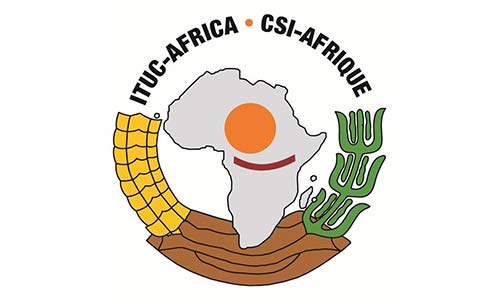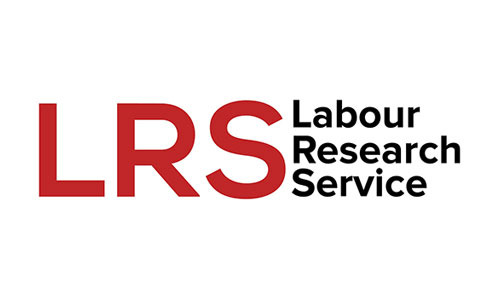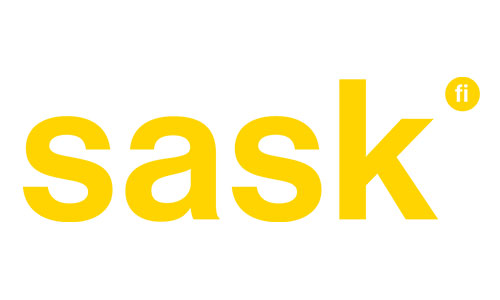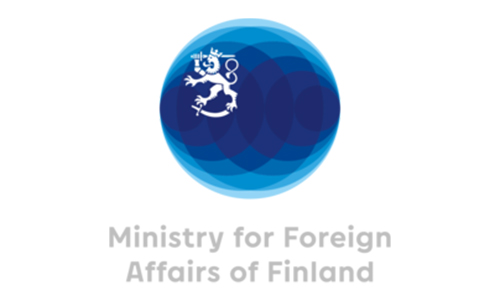Ensuring that markets around the world have access to nutritious food requires international trade and cross-border cooperation. In sub-Saharan Africa, informal cross-border trade is dominated by food, especially small-scale groceries and fresh produce. Over 70% of informal cross-border traders in sub-Saharan Africa are women. These women address vital issues of livelihoods such as food and income security. The strong nexus between gender and food security demonstrates the importance of integrating women into policy responses.
A growing food security crisis is looming globally. Food security exists when all people, at all times, have physical, social and economic access to sufficient, safe and nutritious food which meets their dietary needs and food preferences for an active and healthy life. Drivers of food insecurity in Southern Africa include climate change impacts, income and inequality, and land and soil degradation. Direct causes of inadequate food access are poverty, environmental stressors and conflict.
Food insecurity has risen since 2015 in sub-Saharan African countries. Climate change is intensifying food security across the region with lasting adverse macro-economic effects, especially on economic growth and poverty. Successive shocks from the war in Ukraine and the Covid-19 pandemic have increased food prices and depressed incomes, raising the number of people suffering from severe malnutrition and those unable to meet basic food consumption needs by at least 30%, totalling 123 million in 2022 or 12% of the sub-Saharan population. According to the Food Insecurity Experience Scale (FIES), sub-Saharan Africa has the highest prevalence of food insecurity in the world. Approximately 44.8 million people in 13 countries of the Southern African region suffer from food insecurity, the Southern Africa Development Community reports. Additionally countries in southern Africa such as Malawi and Mozambique have suffered the brunt of Cyclone Freddy which occurred in March 2023 and caused devastation in agricultural production and distribution, compounding the food security crisis. Prior to Cyclone Freddy, many farmers in southern Malawi were struggling to recover from Cyclone Ana which destroyed more than 220 000 farmers’ fields and crops in January 2022, as well as cyclones Idai and Kenneth that caused widespread flooding and crop destruction in 2019. The World Food Programme estimates that almost 2.3 million people in the agriculture sector have lost their crop and livestock and that over 179 000 hectares of crop fields have been destroyed due to Freddy which further left 1.3 million people at risk of acute food insecurity and displaced almost 900 000 households across 500 temporary shelters set up across the country.
Approximately 44.8 million people in 13 countries of the Southern African region suffer from food insecurity.
~ Southern Africa Development Community
Other Southern African countries affected by natural disasters (including droughts, floods, cyclones and landslides) in recent years include Madagascar, Democratic Republic of Congo, South Africa, Eswatini and Zambia. Natural disasters in the region have exacerbated an already fragile situation.
Ensuring that markets around the world have access to nutritious food requires international trade and cross-border cooperation. Although the types of goods carried by informal cross-border traders varies widely, trade in sub-Saharan Africa is dominated by food, especially small-scale groceries and fresh produce. Cross-border traders are key in getting food from one country to another. Women in cross-border trade address vital issues of livelihoods such as food and income security. Women’s informal cross-border trade (ICBT) activities have cushioned effects of financial, food and natural disaster crises in many African countries. According to the African Development Bank informal cross-border trade provides income for about 43% of Africa’s population.
According to UN Women, the value of informal cross-border trade in the Southern Africa Development Community (SADC) region is estimated at US$ 17.6 billion per year. Informal cross-border trade contributes for 30-40% to intra-SADC trade. Over 70% of informal cross-border traders are women. The main foodstuffs traded are maize, rice and beans. Maize is the staple food for the majority of countries in Southern Africa.
Women’s informal cross-border trade (ICBT) activities have cushioned effects of financial, food and natural disaster crises in many African countries.
The border cities of Mwami and Mchinji, located between Malawi and Zambia, jointly constitute one of the most active informal trade hubs in Southern Africa. Mwami-Mchinji is now a One Stop Border Post (OSPB). Every month, between 20 000 and 30 000 small traders are estimated to cross through the Mwami/Mchinji border post, the value of small-scale transaction is estimated at over US$ 7.7 million per month, 40% of which is from informal trade. An analysis on Informal Cross Border Trade in Southern Africa in 2019 shows that maize flows from Zambia to the Democratic Republic of the Congo were the largest, although there were some substantial volumes from Mozambique to Malawi, and from Zambia to Tanzania.
Women traders face challenges with socio-cultural barriers, sexual harassment, tariff and non-tariff barriers, and limited access to finance and inadequate start-up capital. Additionally, they have limited access to credit facilities, foreign currency exchange, transport services and storage facilities for agricultural commodities in cross-border markets. Across the region, women in informal cross-border trade do not use available financial systems and structures for most of their transactions. This is as a result of the majority of banks not permitting the issue of loans to unlicensed/unregistered traders as well as having collateral requirements, both of which women engaged in ICBT ordinarily lack.
The strong nexus between gender and food security demonstrates the importance of integrating women into policy responses, because “to discuss intra-Africa trade, one must consider its informality, the small size of the trader, and the important role of women” (World Bank Blogs). Inclusion of women in policy-planning is key to ensuring policy-formulation is aligned to the needs and aspirations of women traders. Simplified Trade Regimes (STR) can assist in addressing food security challenges: informal cross-border trade is conducted most by women and a very large proportion of their trade is food. While COMESA has an STR, SADC does not yet have an operational STR.
COMESA’s STR extends the benefits of a free trade area between countries by abolishing duties on an agreed list of goods produced locally and sold in members of this regional economic community, for consignments below a specific value threshold. The STR which is being implemented by some COMESA member states empowers women ICBT to benefit by not having to pay customs duties for transactions under a threshold value which is currently at US$ 2 000 per consignment. Countries can, however, bilaterally agree on a different specific threshold; Malawi and Zambia, and Malawi and Zimbabwe have agreed on US$ 1 000. The STR aims to overcome problems associated with proving that goods originate in a member state. However, taxes are still payable if the goods attract Excise Duty and Value Added Tax (VAT).
Simplified Trade Regimes can assist in addressing food security challenges: informal cross-border trade is conducted most by women and a very large proportion of their trade is food.
Malawi launched trade under the COMESA STR with Zambia in May 2010 and with Zimbabwe in August 2012. Currently, the borders that are involved in STR transactions are Nyamapanda-Mwanza for Malawi – Zimbabwe and Mwami – Mchinji for Malawi and Zambia. There are Common Lists of Products that are agreed between COMESA member states to be traded under the STR arrangement. Practically, there are agreed lists of products between Malawi and Zambia, Malawi and Zimbabwe and Zambia and Zimbabwe. The Malawi-Zambia list of eligible products includes some agricultural products, live animals, food products, furniture, stationery and other assorted items.
In a bilateral meeting held between Malawi and Zambia convened by COMESA in April 2023, it was noted that there were challenges in implementing the regime. These include having very few Trade Information Desk Officers (TIDOs) to support cross-border trade, increased cost of doing business because priority is given to big traders with large consignments of goods, bureaucratic procedures in obtaining necessary documentation such as import and export permits, sanitary and phytosanitary certificates, and health veterinary certificates. It was also noted that there are no regular updates of the Common list of products.
Addressing challenges identified in the STR, including updating the list of products, is critical in ensuring that women in informal cross-border trade are empowered to conduct business in the region, the majority of which is agricultural, resulting in contribution towards food security in the region. Other areas that require addressing include:
- Access to technology, digital financial inclusion and capacity building in e-commerce for women in informal cross-border trade. This can prove transformational in trade facilitation and in maximising the benefits of trade agreements among women.
- Gender-sensitive border infrastructure. This is key to supporting women, especially in agri-based cross-border trade. Border posts need to have washrooms for women and cooling facilities for fresh agricultural produce.
- Access to information on the STR, and requirements to benefit from the arrangement, including compliance to Sanitary and Phytosanitary (SPS) measures required for trade in food.
Governments and other key stakeholders in SADC need to empower women ICBT with adequate capital/special initiatives or incentives/transportation to enable them to quickly move agricultural produce in disaster-hit and disaster-prone areas in the region through linkages with larger and formal enterprises.
The potential benefits of informal trade include increased food security, faster job creation, more poverty reduction, increased tax revenues for authorities and better long-term developmental outcomes.
_________________
References
Brixi, H., and Van Nieuwkoop, M. 2022. Empower HER to address food and nutrition security in Africa. World Bank Blog. https://blogs.worldbank.org/voices/empower-her-address-food-and-nutrition-security-africa
Misselhourn, A. 2005. What drives food insecurity in Southern Africa? A meta-analysis of household economy studies. Global Environmental Change, 15(1):33-43. https://www.researchgate.net/publication/222814543_What_drives_food_insecurity_in_Southern_Africa_A_meta-analysis_of_household_economy_studies
World Bank, What is food security? Available at https://www.worldbank.org/en/topic/agriculture/brief/food-security-update/what-is-food-security
Read: Trade union recommendations to ensure decent work for women and youth in the AfCFTA
TRALAC
The Trade Law Centre NPC (TRALAC ) builds trade-related capacity in Africa; assisting countries to improve trade governance and inclusive policy processes to ensure that trade contributes to sustainable development outcomes.





